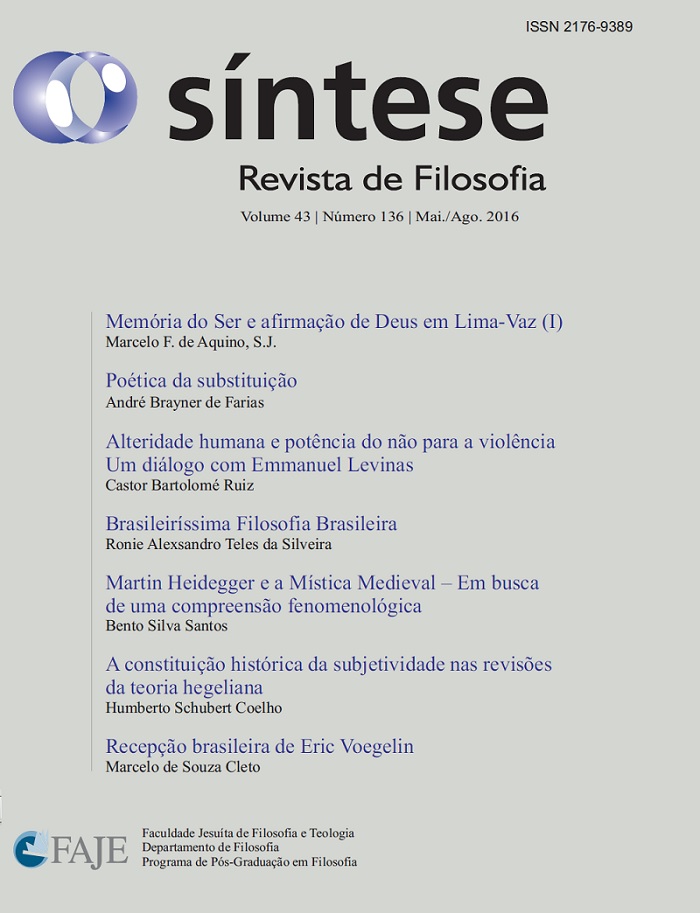A CONSTITUIÇÃO HISTÓRICA DA SUBJETIVIDADE NAS REVISÕES DA TEORIA HEGELIANA
DOI:
https://doi.org/10.20911/21769389v43n136p305/2016Palavras-chave:
História. Subjetividade. Autorrelação. Filosofia da história. Liberdade / History. Subjectivity. Self-relation. Philosophy of History. FreedomResumo
Resumo: Não apenas pela natureza sistemática do projeto hegeliano como pela importância que a teoria da subjetividade inconfundivelmente assume para ele, a filosofia da história, como outros elementos, não pode ser satisfatoriamente compreendida sem uma análise conjunta do caráter histórico da subjetividade. Uma vez que subjetividade e intersubjetividade se sustentam e justificam mutuamente, toda teoria da história é sempre e necessariamente também uma teoria sobre as biografias, individuais, e as formas da cultura, das coletividades. Ao passo que estes finitos não produzem o todo, o todo tem de poder ser neles encontrado, de maneira que os princípios gerais, como o da história, estão sempre implícitos nos sujeitos e suas comunidades específicas. Somente assim entende-se que a filosofia da história é capaz de resistir à s muitas críticas de anulação da individualidade e da incerteza quanto ao destino, oriunda do livre-arbítrio humano. Apresentaremos, portanto, alguns dos intérpretes contemporâneos do hegelianismo buscando enfatizar suas teorias da subjetividade como imprescindíveis para esboços de filosofia da história que preencham os critérios mais atuais.
Abstract: Not only for the systematic nature of the Hegelian Project but also for the importance that the theory of subjectivity unmistakably assumes for Hegel, the philosophy of history, as well as other elements, cannot be understood satisfactorily without a parallel analysis of the historical character of subjectivity. Since subjectivity and intersubjectivity are mutually supportive, any theory about history is consequently and necessarily also a theory of biographies (individuality) and of the forms of culture (collectivity). Although these finitudes do not make the whole, the whole has to be found in them, so that the general principles, like history, are always implicit in individuals and specific communities. This seems to be the only way the philosophy of history can resist the many charges of annihilation of individual freedom and the uncertainty of destiny deriving from human free-will. Thus, we will present some contemporary Hegelian interpreters, in order to highlight their theories of subjectivity as instrumental to outline a philosophy of history that meet the more recent criteria.






























